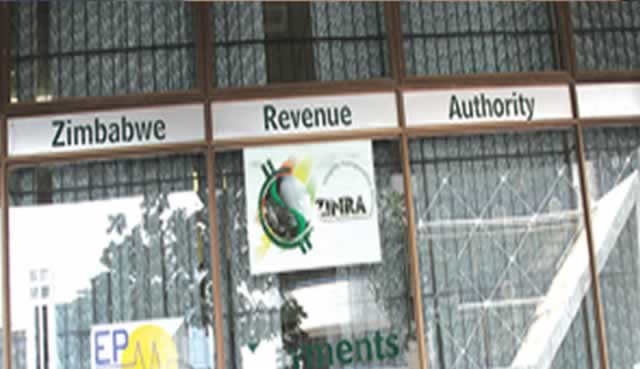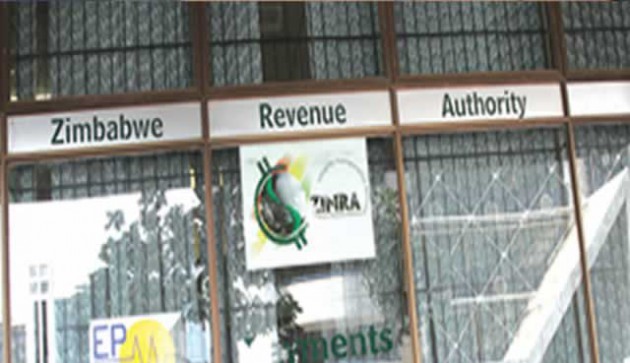Concourt challenge for Zimra powers

 Daniel Nemukuyu Senior Court Reporter—
Daniel Nemukuyu Senior Court Reporter—
Sections of the Value Added Tax Act that empower the Zimbabwe Revenue Authority (Zimra) to garnish companies’ bank accounts without a court order and to unilaterally recover tax owing by collecting money from the firms’ debtors have been challenged at the Constitutional Court. The Constitutional Court is also expected to determine the constitutionality of the “pay now, argue later” piece of legislation that compels firms to continue paying tax despite having challenged the figures owing in a court of law.
Related articles…
- Zimra ushers in new tax devices
- Zimra garnishes State Procurement Board
- Taxmen tackle illicit financial flows, tax evasion
- Zimra opposes tax incentives
Packers International (Private) Limited, which owns Chicken Slice, Pizza Slice and Creamy Slice filed the Constitutional application recently amid cries that it was being compelled to settle a contested hefty $24 million debt in tax arrears.
Zimra claimed $12 505 707 in unpaid income tax, $1 537 780 in outstanding Pay As You Earn and $10 446 129 in unpaid VAT. The contested Section 48 of VAT Act, which empowers Zimra to garnish firms’ bank accounts or collect money from owing companies’ debtors without any court order reads:
“For the purpose of subsection (2) —“person” includes—(a) a bank, building society, or savings bank; and (b) a partnership; and (c) any officer in the public service and (d) any prescribed person in relation to a prescribed service.
“(2) The Commissioner may, if he thinks it necessary, declare any person to be the agent of any other person, and the person so declared an agent shall be the agent of such other person for the purposes of this Act, and, notwithstanding anything to the contrary contained in any other law, may be required to pay any amount of tax, additional tax, penalty or interest due from any moneys in any current account, deposit account, fixed account or savings account or any other moneys — including pensions, salary, wages or any other remuneration, which may be held by him for, or due by him to, the person whose agent he has been declared to be; or (b) that the person so declared an agent receives as an intermediary from the other person.”
According to Packers International’s lawyers, Manase and Manase Legal Practitioners, Section 48 of VAT denies the firms right to equality before the law and equal protection of the law as enshrined under Section 56 (1) of the Constitution of Zimbabwe.
“The Respondents (Zimra) have the power to garnish and to determine what is due and owing by nominating an agent to collect tax on their behalf regardless of a pending appeal. However, such a right does not extend to the applicant in dealing with its own creditors.
“Indeed, this exposes the truth that applicant and respondents are not equal before the law and that they do not enjoy an equal right to benefit and to be protected by the law,” reads the application.
Packers argued that Zimra, like any other parties, must approach the courts first to get a garnishee order before raiding tax defaulters bank accounts. “If our Constitution is truly alive in this day, then Section 48 of VAT Act is an abomination that should not exist.
“If respondents (Zimra) are of the view that they are owed money, then like everyone else, they must convince a court that they must be allowed to garnishee whilst an appeal is pending.
“The manner in which the respondents are allowed to act by Section 48 of VAT Act is unconstitutional and places them on a higher pedestal than all other persons and certainly above the applicant,” read the papers.
Packers argued that Section 36 of VAT Act, which stipulates that no appeal can suspend the decision by Zimra to garnish the accounts, was in violation of the right to administrative justice.
Section 36 of VAT Act reads:
“The obligation to pay and the right to receive and recover any tax, additional tax, penalty or interest chargeable under this Act shall not, unless the Commissioner so directs, be suspended by any appeal or pending the decision of a court of law, but if any assessment is altered on appeal or in conformity with any such decision or a decision by the Commissioner to concede the appeal to the Fiscal Appeal Court or such court of law, a due adjustment shall be made, amounts paid in excess being refunded with interest at the prescribed rate and calculated from the date proved to the satisfaction of the Commissioner to be the date on which such excess was received, and amounts short-paid being recoverable with penalty and interest calculated as provided in subsection (1) of section thirty-nine.”
Packers wants sections 36 and 48 to be removed from the statute books. “Therefore, it is clear that the mechanisms used by the respondents in terms of Section 36 and 48 of the Value Added Tax Act clearly violate the constitution.
“This court has the duty to strike down such offending laws and the applicant has come before this Honourable Court and made representations as to why these laws must be struck down,” argued Packers.









Comments